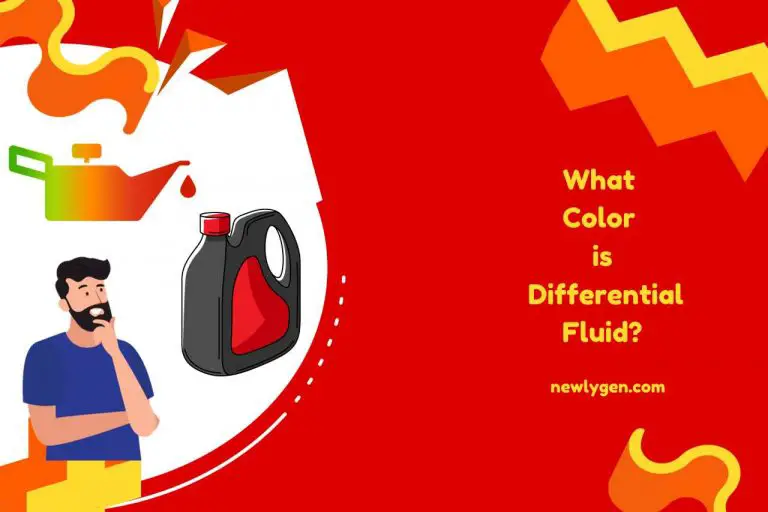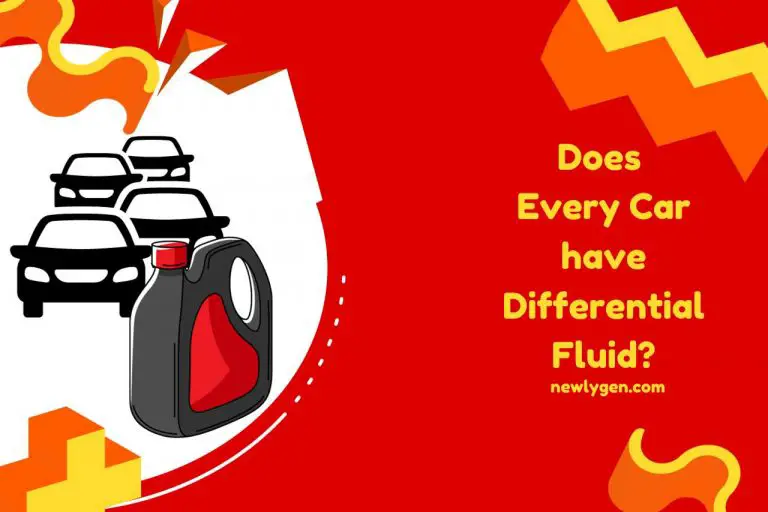Can Bad Differential Fluid Cause Vibration? Unveiling the Truth!!!
Ever wondered, ‘Can bad differential fluid cause vibration in my vehicle?’ This seemingly niche question is more relevant than you might think. Many of us focus on common car maintenance, overlooking the significance of differential fluid. But knowing how it can affect your drive, especially through vibrations, is essential for both the seasoned car enthusiast and the everyday driver. Dive in as we explore the link between differential fluid and those unexpected shakes in your vehicle
Can Bad Differential Fluid Cause Vibration?
Yes. Bad or deteriorated differential fluid can lead to vibrations in the vehicle. The differential, a crucial component in most vehicles, primarily works to allow the wheels to rotate at different speeds. Here’s why the quality of its fluid matters:
- Lubrication: Good differential fluid ensures that the gears inside the differential are well-lubricated. When the fluid goes bad, the lubrication diminishes, leading to increased friction and subsequent vibrations.
- Heat Reduction: The fluid acts as a coolant, preventing the differential from overheating. Degraded fluid might not dissipate heat efficiently, making components more prone to wear and, eventually, vibrations.
- Protection: Quality fluid protects the gears from debris and contaminants. Old or bad fluid might contain contaminants that can harm the internal components, resulting in vibrations or other related issues.
What are the Early Symptoms of Bad Differential Fluid Before Vibration Starts?
Addressing the query, “What are the early symptoms of bad differential fluid before vibration starts?”, it’s essential to note that several warning signs can hint at deteriorating fluid. Identifying these early can avert potential complications.
Here’s a breakdown of the early indications:
- Whining Noise: Before any tangible vibrations are felt, a common sign of aging differential fluid is a high-pitched whining noise emanating from the differential, especially during turns.
- Overheating: Differentials can overheat if the fluid isn’t providing adequate cooling. An unusually warm differential or burning smells indicates possible fluid issues.
- Fluid Leaks: Spots of thick fluid beneath the vehicle or around the differential housing are clear indicators of leaks, signifying compromised fluid quality.
- Difficulty in Handling: If the vehicle becomes hard to handle or there’s noticeable resistance, especially when making turns, the differential fluid might be the culprit.
What Happens When Differential Fluid Becomes Contaminated?
It’s crucial to understand that contamination negatively affects the fluid’s function and the vehicle’s performance. Essentially, when contaminants infiltrate the fluid, a range of issues can ensue.
Here are the key consequences of contaminated differential fluid:
- Increased Friction: Clean fluid lubricates the differential’s gears. Contaminated fluid reduces this lubrication, causing increased friction between gears, leading to potential wear and tear.
- Overheating: Contaminants can cause the fluid to lose its cooling properties. This results in the differential overheating, which can damage its components and even lead to failure.
- Corrosion: Contaminants, especially water, can lead to corrosion of the differential’s internal components. Corroded parts can compromise the differential’s performance and longevity.
- Reduced Fluid Viscosity: Contaminants can alter the fluid’s thickness. A change in viscosity affects the fluid’s ability to lubricate and cool, further endangering the differential.
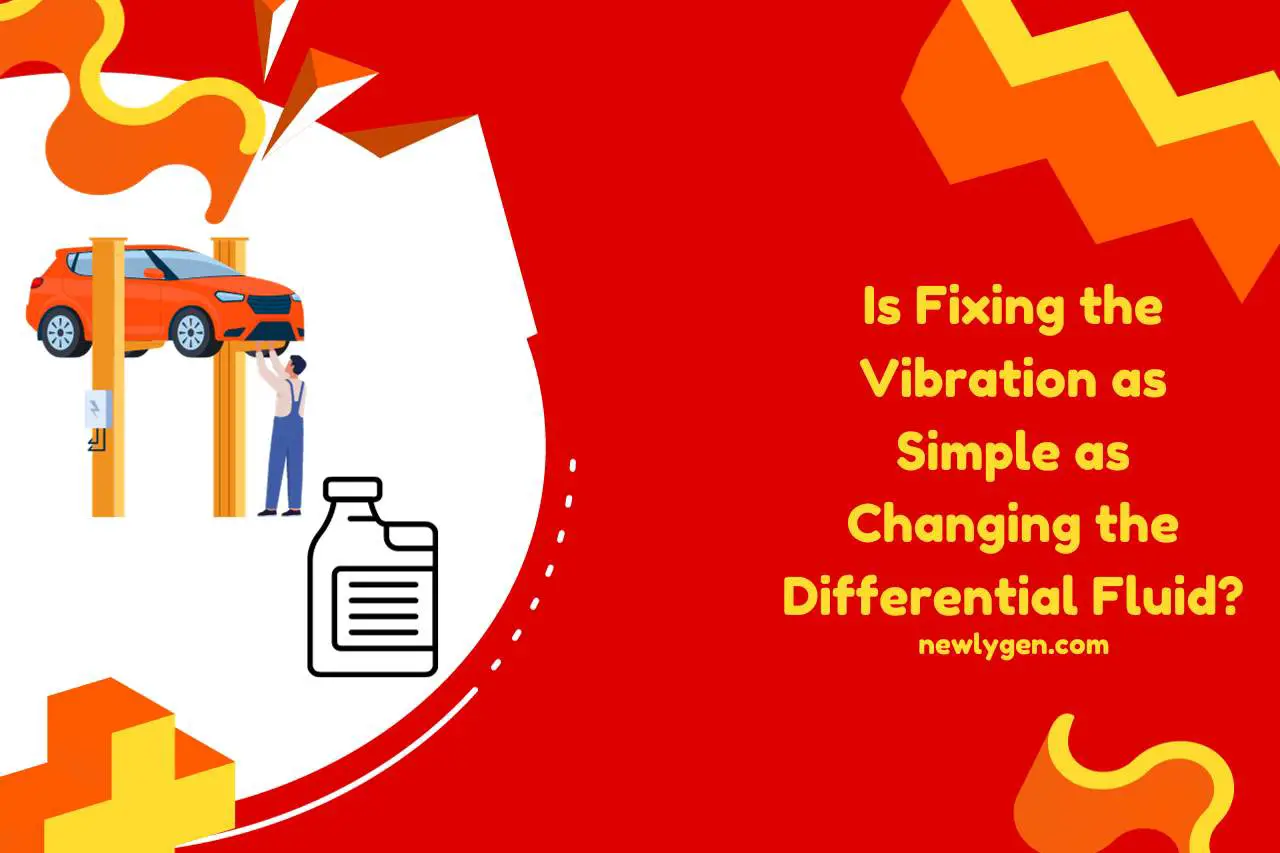


Is Fixing the Vibration as Simple as Changing the Differential Fluid?
Yes. Changing contaminated or degraded differential fluid can rectify minor vibrations caused due to inefficient lubrication.
However, it’s essential to understand the context more deeply:
- Root Cause: If the root cause of the vibration is indeed related to poor lubrication or contaminated fluid, changing the fluid could alleviate the issue. Regular fluid checks and maintenance can prevent such scenarios.
- Other Underlying Issues: Vibrations can also stem from worn-out bearings, misaligned gears, or other damaged components. In these cases, simply changing the fluid won’t be a comprehensive solution.
-
Diagnosis is Key: Before jumping to a solution, proper diagnosis is crucial. Relying on a certified mechanic’s expertise to assess the situation is a wise approach.
Watch this one,
Video Credits – EasyAutoFix
You May Also Like
- Can you Overfill Differential Fluid? Understanding the Basics!
- How to Replace Rear Differential Fluid? Mastering Vehicle Maintenance!
- How Often to Change Differential Fluid? Understanding Your Car!
- Is Differential Fluid Flammable? Unmasking Myths!
- Does Differential Fluid Need to be Changed? Ensuring Your Car’s Health!
- Cost to Change Differential Fluid – (DIY vs Professional Services)
- What Color is Differential Fluid? Decoding the Shades!
- What does Differential Fluid Smell Like? Unraveling the Mystery!

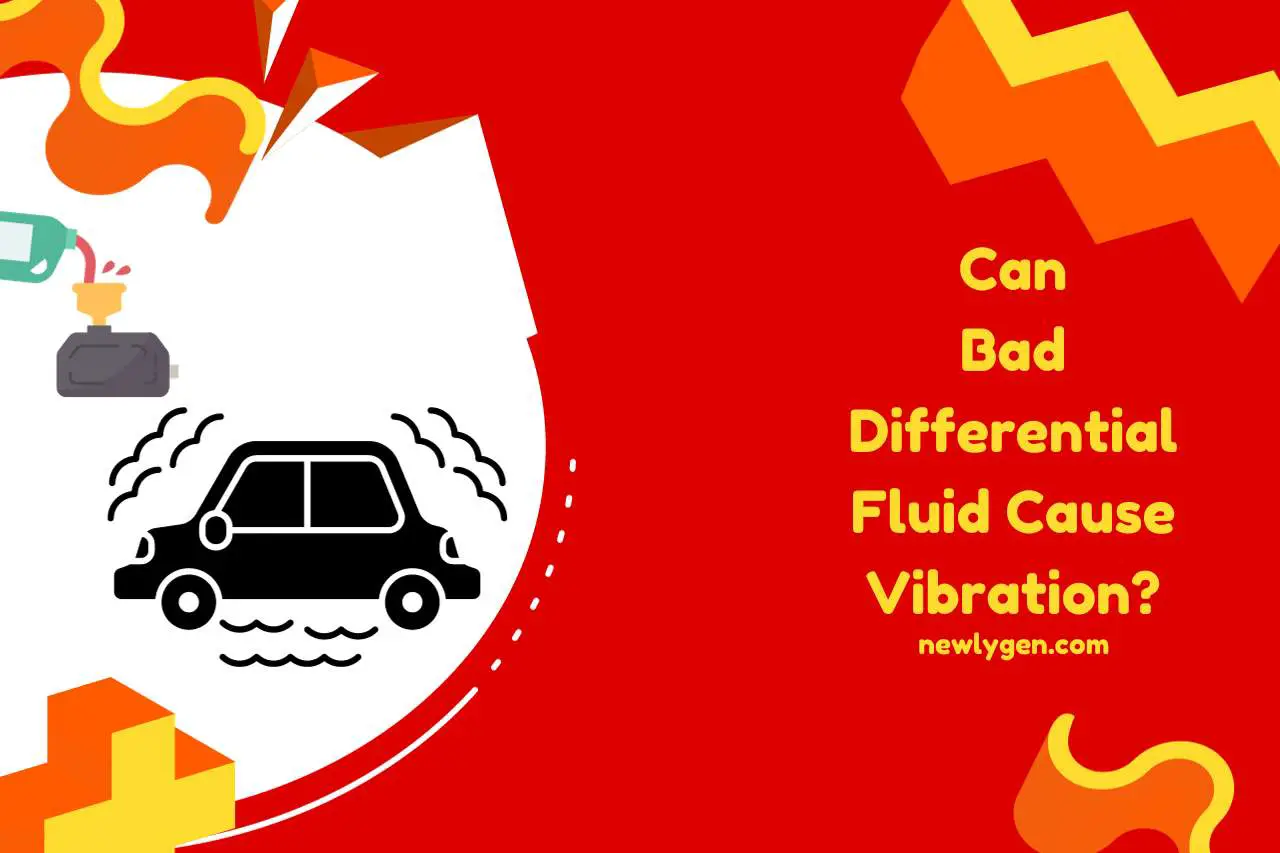
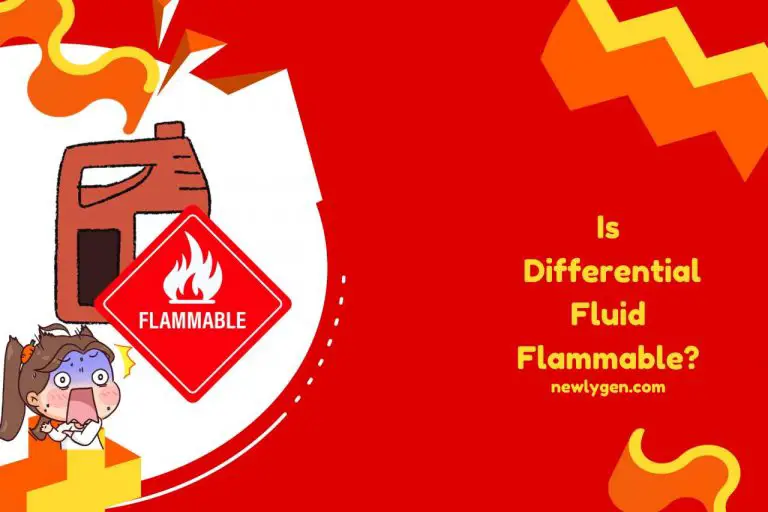

![Is Spray Paint Flammable? [Myths And Conceptions]](https://newlygen.com/wp-content/uploads/2023/02/what-causes-spray-paint-to-bubble-1-1-768x512.jpg)
